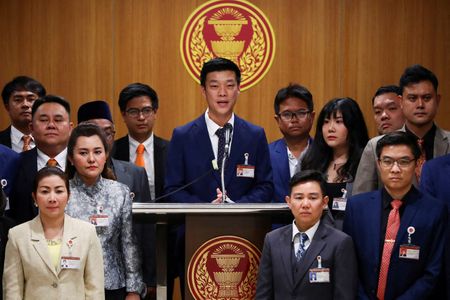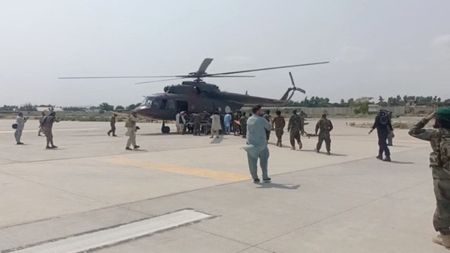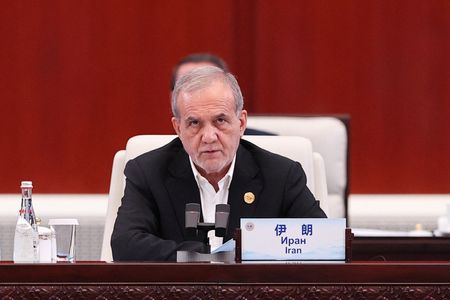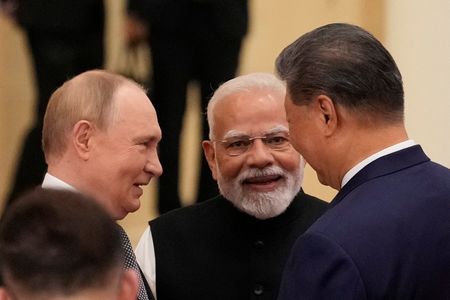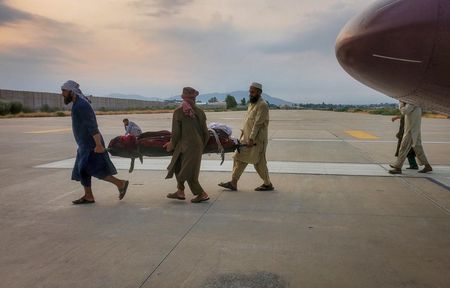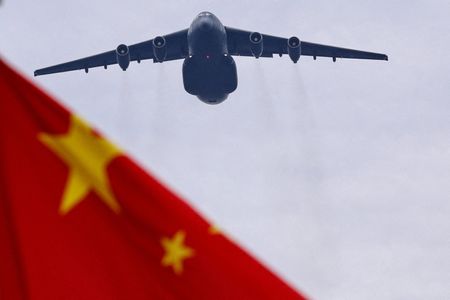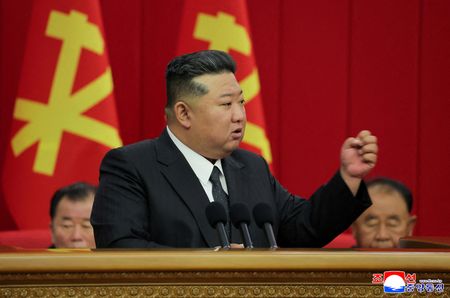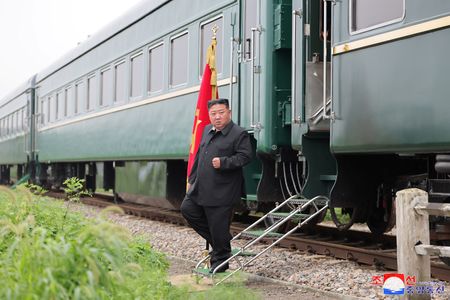By Chayut Setboonsarng
BANGKOK (Reuters) -The biggest party in Thailand’s parliament held out on Monday in deciding whom it would back to form the next government, prolonging uncertainty as two rival camps jostled for its crucial votes following the prime minister’s sacking.
The opposition People’s Party will not join any government but with control of nearly a third of the house seats, it is a potential kingmaker that can break the political deadlock caused by Friday’s dismissal of Paetongtarn Shinawatra by the Constitutional Court for an ethics violation.
Lawmakers of the People’s Party met on Monday to weigh the merits of backing Paetongtarn’s ruling Pheu Thai party, or Bhumjaithai, a renegade party that quit the governing coalition in June and is mounting its own bold challenge.
“There was a wide exchange of views today and the party will convene again tomorrow,” said People’s Party spokesperson Parit Wacharasindhu.
“To be straight, we don’t trust either,” he said, when asked if the two camps would honour the party’s demands that a referendum be held on amending the constitution and parliament be dissolved within four months.
In the latest upheaval in a turbulent, two-decade battle for power and patronage among Thailand’s rival elites, 39-year-old Paetongtarn became the sixth premier from or backed by the billionaire Shinawatra family to be ousted by the military or judiciary and the second in the space of a year.
ALL TO PLAY FOR
The once-dominant Pheu Thai, founded by Paetongtarn’s deep-pocketed father Thaksin Shinawatra, faces a big task in shoring up a coalition that has haemorrhaged public support, opening the door to a spree of dealmaking by its former alliance partner Bhumjaithai and its ambitious leader Anutin Charnvirakul.
Parliament is due to hold a special session starting Wednesday and the secretary-general of the house told Reuters it could hold a vote on a new prime minister this week, if parties were ready to nominate a candidate.
With neither group guaranteed the votes and much still to play for, the process to elect a prime minister could be protracted and there is no time limit on forming a new government.
With political interests shifting, bitter histories of betrayal and big war chests to work with, there is plenty of scope for switches in allegiance, bringing the prospect of deadlock at a time of weak growth and a dim outlook for Southeast Asia’s second-biggest economy.
The spotlight in the days ahead will remain firmly on the hugely popular People’s Party, a reincarnation of Move Forward, which won the 2023 election on an anti-establishment platform but was blocked from power by lawmakers allied with the royalist military.
The leadership of Bhumjaithai and Pheu Thai have held separate meetings with People’s Party and both said they were ready to comply with its demands.
“We are in a political crisis, and there is a need to find a common solution,” Pheu Thai’s Phumtham Wechayachai, the acting prime minister, said on Sunday.
(Reporting by Chayut Setboonsarng; Additional reporting by Panarat Thepgumpanat; Writing by Martin Petty; Editing by Michael Perry and Ros Russell)

